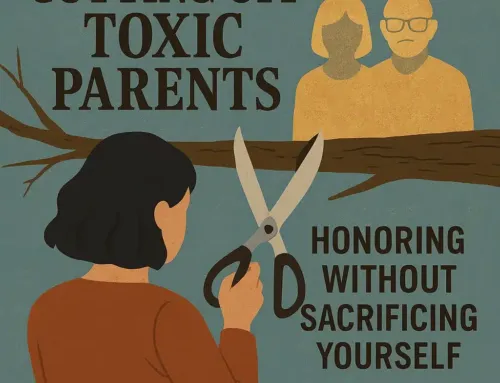
Approx. read time: 7 min.
Post: Navigating Early Independence: Practical Guidance for Moving Out in High School or Right After Graduation
Moving out in high school or immediately after graduating can be exciting—but it’s also a huge life decision. Parents often worry about financial stability, emotional maturity, and overall safety. At the same time, it’s essential to recognize that time is money: postponing graduation or missing out on workforce opportunities can translate to significant lost income—potentially $80,000 to $120,000+ for each additional year spent out of full-time employment or delayed education.
In this expanded guide, we’ll follow Hannah, a high school student who’s on the fence about either staying in school for an extra year or embracing early independence. By looking at her different choices, we’ll see how parental concerns, financial realities, and “fear of adulthood” all come together. Ultimately, you’ll get practical advice on whether moving out now—or sticking around a bit longer—is best for you.
1. The Financial Consequences of Delayed Graduation
1.1 The Income Gap: $80,000 – $120,000+ Per Year
Hannah’s Dilemma:
Hannah is 17 and considering repeating her senior year to “take it easy” and enjoy high school. However, she also knows that if she graduates on time and immediately starts working full-time or pursuing higher education, she could jumpstart her career and potentially earn $40,000–$50,000 right out of the gate in a decent entry-level role.
- Lost Wages: By repeating a grade or delaying that first job, Hannah could miss out on an entire year of full-time income, possibly upwards of $80,000–$120,000 when you add in benefits, raises, and long-term earning potential.
- Sources:
- Bureau of Labor Statistics – Compare potential earnings for various careers.
1.2 Compound Effect Over Time
Hannah’s Reality Check:
If Hannah waits an extra year, the ripple effect can follow her for a decade or more. She’ll be a year behind in climbing the career ladder or developing specialized skills, which might decrease her overall lifetime earnings by thousands—or even hundreds of thousands—of dollars.
- Opportunity Costs: She also misses out on 401(k) contributions, possible employer-sponsored health benefits, and valuable networking that occurs within the workplace.
2. Understanding Parental Concerns
Even as Hannah contemplates the financial upside of an earlier launch into adulthood, her parents offer some perspective:
- Financial Readiness
- Parents’ Worry: Hannah’s parents aren’t sure she’s prepared for rent, groceries, medical bills, or other unpredictable expenses.
- Emotional Well-Being
- Parents’ Worry: They sense Hannah might feel overwhelmed balancing work, a social life, and newfound adult responsibilities.
- Academic Completion
- Parents’ Worry: They want to ensure Hannah graduates high school on schedule. A diploma remains a baseline requirement for many jobs and further education.
- Safety and Security
- Parents’ Worry: Living on your own at a young age can bring safety challenges. Emergencies, roommate conflicts, or sketchy neighborhoods can complicate daily life.
3. Balancing “Moving Out” With “Moving On”
3.1 Graduating On Time (or Early)
Hannah’s Strategy:
- Graduating On Schedule: Hannah can check how many credits she needs to finish on time. If she’s missing any, she might consider an online summer course.
- Early Graduation: If she’s ahead in her credits, Hannah could wrap up high school a semester early, giving her a head start on a job or college course load.
Key Benefit:
- Hannah starts earning money (and learning critical life skills) sooner.
3.2 Planning for Independence While Still in High School
Hannah’s Game Plan:
- Part-Time Job: Hannah takes a weekend job at a local café, banking 50% of her pay in a savings account.
- Financial Literacy: Using budgeting apps like Mint or Chime helps her track expenses and grow her emergency fund.
Long-Term Advantage:
- By the time Hannah graduates, she could have enough savings to cover at least a month or two of rent if she decides to move out.
3.3 Exploring Post-High School Pathways
Hannah’s Options:
- College or Trade School: Whether she wants to become a software developer or a plumber, specialized training can significantly increase her earning potential.
- Apprenticeships or Internships: Hannah might find a paid apprenticeship in construction, IT, or healthcare—earning a salary while she learns on the job.
Earning Curve:
- While some of Hannah’s friends might still be figuring out their next step, she’ll be gaining skills and a possible paycheck sooner.
4. Overcoming the Fear of the Real World
4.1 Open Communication with Parents
Hannah’s Approach:
- Evidence-Based Plan: Hannah shows her parents a spreadsheet detailing her potential income, living expenses, and a timeline for how she’ll manage college or trade school.
- Addressing Their Concerns: By explaining her budget and safety precautions, Hannah eases her parents’ anxiety about her readiness.
4.2 Small Steps Toward Independence
Hannah’s Short-Term Wins:
- Volunteering or Odd Jobs: Hannah decides to volunteer at a local tech startup for real-world exposure, or picks up gig work on weekends (e.g., babysitting, freelancing).
- Practice Household Skills: She regularly cooks dinner and does her own laundry to get used to adult responsibilities.
4.3 Building a Support Network
Hannah’s Community:
- Friends and Mentors: She seeks advice from older classmates who’ve already moved out or started college early.
- Online Forums: Subreddits like r/PersonalFinance help Hannah understand budgets, credit cards, and long-term financial planning.
5. Strategies for a Smart Transition
5.1 Practical Budgeting Tips
- Track Every Expense: Hannah documents her weekly spending (coffee runs, transportation, phone bill) to see where she can cut back.
- Emergency Fund: She’s aiming for $1,000 initially, building up to three months of living expenses.
- Avoid High-Interest Debt: She’s cautious about credit cards, ensuring she pays off the full balance monthly.
5.2 Secure Affordable Housing
- Roommates: Hannah plans to move in with two friends to split rent and utilities, lowering the cost of living.
- Campus Dorms: If she chooses a college with on-campus housing, she can reduce daily commute costs and be closer to educational resources.
5.3 Ongoing Education and Upskilling
- Community College: Hannah checks out local community college programs in nursing and digital marketing—two high-demand fields.
- Online Platforms: She signs up for relevant courses on Coursera, edX, or Udemy to build marketable skills on a flexible schedule.
6. Real-Life Scenarios: Hannah’s Different Paths
- Hannah’s Early Graduation
- Situation: Hannah realizes she’s just two credits away from early completion.
- Action: She takes a summer class, graduates in December, and starts a paid internship at a local marketing firm by January.
- Result: She earns $18/hour for six months before many of her peers even finish high school. That’s a potential $15,000+ extra income, boosting her savings for college and reducing future student loan debt.
- Hannah’s Delayed High School Completion
- Situation: Instead of graduating on time, Hannah listens to her friends urging her to stay behind and “enjoy senior year 2.0.”
- Action: She coasts through another year without extra credits or a job.
- Result: By the time Hannah finally graduates, she has no additional savings. She’s missed out on a full year of potential income ($40,000 or more), leaving her feeling behind financially and professionally.
- Hannah’s Vocational Leap
- Situation: Hannah struggles with traditional classroom settings but excels at hands-on tasks. She enrolls in a carpentry apprenticeship.
- Action: She dedicates after-school hours to the apprenticeship and completes her high school diploma on schedule.
- Result: With her carpentry certificate in hand, Hannah immediately starts making $20/hour upon graduation, forging a path to earn $50,000+ annually within her first two working years.
Conclusion
Hannah’s examples show how critical it is to weigh the pros and cons of either graduating on time (or early) versus staying an extra year in high school. While parents’ worries often come from a place of genuine love and caution, the financial impact of delaying your entry into the workforce or higher education can be staggering—sometimes reaching $80,000–$120,000 or more in lost wages each year.
Remember that time truly is money. If you’re deciding whether to move out or prolong your high school experience, consider creating a solid plan that addresses both financial and emotional readiness. Communicate openly with family, seek guidance from mentors, and utilize online resources to make an informed decision. By doing so, you can confidently step into adulthood and set yourself up for success—just like Hannah.










